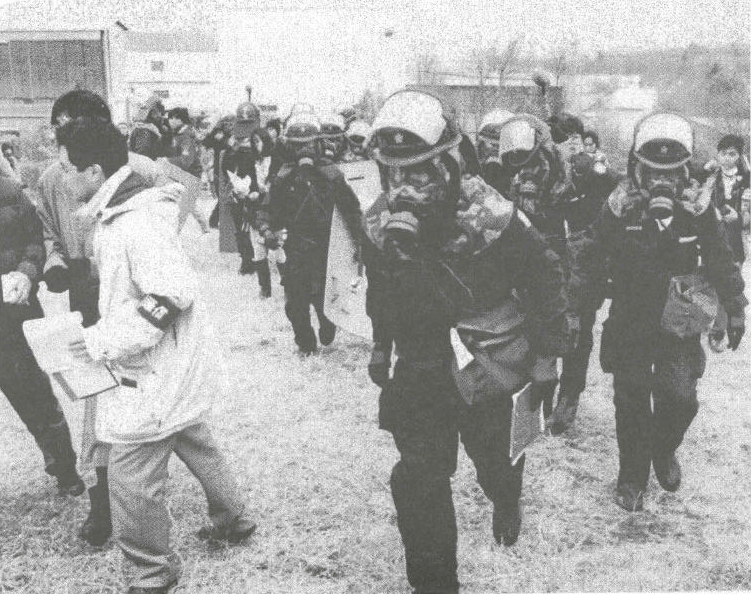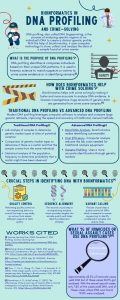It was during the morning rush hour on 20 March 1995.1 Atsushi Sakahara, an office worker in Tokyo, Japan, was riding on the subway on his way to work. Everything for him was as usual that morning, until he realized that something was changing in his body. He felt something wrong with his eyes. He was not able to focus on objects, which made him wonder whether he had forgotten to wash his contact lenses that morning. He moved to the next car, sensing something strange. It was the right decision, because there was a package wrapped in newspaper nearby him in that car that contained sarin gas.2

On that day, five subway trains in Tokyo were attacked at exactly the same time. The attackers were members of Aum Shinrikyo or Aum Supreme Truth, which is a Japanese religious group founded by Shoko Asahara. They released highly poisonous sarin gas on each train, resulting in innumerable numbers of wounded people.3 Atsushi became one of these victims.
His eyes still felt strange even after he left the car to go to the next one. The strange feeling was because of the sarin gas that he breathed in, despite its small amount. At the moment he began to feel his eyes burn, he looked back to the other side of the door he just left; he saw something. One of the men inside the other car started going into fits. That convinced him that it was indeed dangerous to be there, although he didn’t know actually what was happening. Actually, by that time a number of people had already been exposed to the gas, and some of them stood in great danger. He immediately got off the train before his planned stop, and took a taxi to go to his office. However, his sight remained blurred, as if he were seeing everything through a filter. The next thing he did, which may have saved his life, was to see a doctor instead of continuing to work.4 He judged things correctly and acted calmly.

Fortunately, his injury was not a matter of life and death. Nevertheless, he still suffered from its after effects and some psychical trauma, which totally changed the rest of his life. Sarin is a nerve gas with high lethal potential that causes a variety of secondary diseases. It brings about, for example, blurred vision, eye pain, nausea, headache or dyspnea. Then, many of the victims continue to suffer from sicknesses such as headache or eye symptoms long after the attack.5 Atsushi had dysgraphia, fatigue, numbness of arms and legs, and blackouts subsequent to the attack. And the miserable experience deeply damaged his mind. Indeed, many other people also had mental problems, even after their physical problems were completely healed. Sometimes it is called PTSD, or post-traumatic stress disorder, and the patients suffer from nightmares, dizziness, palpitation, or insomnia.6
It was not easy at all for Sakahara to get over these hardships, after being involved in this act of terrorism. However, he succeeded in finding his own solution. He made movies about his experiences as a form of catharsis: a way to remove damaged feelings by emitting them. He retired his job in Tokyo and went to the United States. He then helped to create a short movie called Bean Cake. The film won the Palme D’Or at the Cannes Film Festival in 2001. After that, he returned to Japan and took up a career as a film maker. And currently he is working on his own documentary film on Aum Shinrikyo, the religious cult that was responsible for the sarin gas attack that brought him and others so much pain. He never gives in to his misfortune, and he refrains from hatred against his attackers. In his interview with Japanese media, he said, “I want to believe in humanity. Even if people kill each other in the name of religion, even if people kill each other in the name of a country, or even if people kill each other in the name of race, I still want to believe in humans.”7

The Tokyo sarin gas attack became the first large-scale terrorist chemical gas attack in the world resulting in 12 fatalities and 5,500 injured.8 Many of them are suffering from the effects of the attack even now, more than twenty years after it happened. Atsushi Sakahara’s upcoming film will help a lot of people to know, remember, and tell the next generation not only about this tragedy, but also about people’s power to overcome such painful experiences.
- Patterns of Global Terrorism 1995, 1996, s.v. “Year in Review.” ↵
- “Survivor’s tale: The Tokyo sarin gas attack 20 years later,” Newswires, 2015, EBSCOhost (accessed September 8, 2018). ↵
- Patterns of Global Terrorism 1995, 1996, s.v. “Asia Overview.” ↵
- “Survivor’s tale: The Tokyo sarin gas attack 20 years later,” Newswires, 2015, EBSCOhost (accessed September 8, 2018). ↵
- Tetsu Okumura, et. al., “Report on 640 Victims of the Tokyo Subway Sarin Attack,” Annals Of Emergency Medicine 28 (1996): 131. ↵
- Toshiyuki Ohtani, et al., “Post-traumatic stress disorder symptoms in victims of Tokyo subway attack: a 5-year follow-up study.” Psychiatry & Clinical Neurosciences58, no. 6 (2004): 626; “Survivor’s tale: The Tokyo sarin gas attack 20 years later,” Newswires, 2015, EBSCOhost (accessed September 8, 2018). ↵
- “Survivor’s tale: The Tokyo sarin gas attack 20 years later,” Newswires, 2015, EBSCOhost (accessed September 8, 2018). ↵
- “Asia Overview,” Patterns of Global Terrorism 1995(1996): 3 ↵



28 comments
Michael Hinojosa
I can’t believe an attack like this actually happened. Never before in my life had I heard of an event like this occurring anywhere in Japan, even when my Japanese high school teacher made us learn some of the history through his class. I’m so glad I discovered this article because after reading it I tried my best to remember if we learned about this anywhere in school and I did nothing but draw blanks.
Aneesa Zubair
You chose an excellent topic for this article. Like many other people, I’ve never heard of this attack before, even though it was the first large-scale terrorist chemical gas attack in the world. This terrible crime damaged so many people’s lives, including that of Sakahara. I’m glad he was able to take his experiences and use them as a filmmaker and activist.
Harashang Gajjar
Amazing article,The experience made him realize that life can be shorter and more valuable than he thought. He left his job at Dentsu advertising agency and consulted with a rabbi in the United States whom he had guided around Japan when he was a university student. He went to the U.S. and spent about a year with the rabbi. He later helped a friend in Hollywood make a short film, Bean Cake, which won the Palme D’Or at Cannes in 2001. He returned to Japan, and had a short-lived marriage with a former member of the Aum cult. In 2010, he published an autobiography, Sarin Gas and Bean Cake, but he still felt unsettled. I guess the catharsis was not enough, he said. He decided to make a documentary on Aum, which has since split into two groups, focusing on a man who is the public relations director of the larger group,Aleph. Sakahara says he still suffers from sleeping problems, fatigue, numbness in his limbs and sometimes blackouts.
Crystal Baeza
I can’t believe I’ve never heard of the attack considering it happened not too long ago. It shows how much happens around us that we are not aware of. I can’t believe this event took place and how badly it effected everyone. I also have never heard of sarin gas or the effects in can cause. It’s just a shame people believe hurting one another in a way to protest or show off their religious values or beliefs can benefit them in some way. Causing harm or war will never be the answer for peace. I would say this article was worth the read and had a good amount of information.
Sabrina Hsu
I had never heard of this attack before and at first when I read the title I was expecting it to be from a long time ago, when it actually was not too long ago. I think the title is true when it says he overcame hardships because he really did. Atsushi experienced a terrorist attack, first-hand, and even though it left him with both physical and psychological trauma, he didn’t let it effect his life. Atsushi was able to continue with his life and become successful doing what he loved.
Mariah Cavanaugh
I continue to be amazed by people such as Shoko Asahara. After the attack, Shoko could have easily fallen into a dark depression and harbored feelings of anger and hatred towards his attackers. He didn’t do that, he was able to find an outlet for his trauma and continue to spread love and forgiveness. Thank you for sharing Shoko’s story with us!
Robert Freise
i have never heard of the sarin gas attacks before this article. It is crazy that Atsushi couldn’t call in for work even if he was exposed to a toxic gas. I guess that really shows how strict Japan is by determining about how much an individual should work given the circumstances I always wondered what would drive people to make a bomb and hurt innocent people. I guess that most of these people that want to terrozize the public have some sort of mental disorder or they were brought up in a way that isn’t good for a young person to grew up in.
Tessa Bodukoglu
I have never heard of this attack before. just like how the author said, I find it crazy how people kill in the name of religion or kill in the name of race. its good that he has such a positive outlook on life and wants to share his experience with others. but overall, this was a very good article to read and ave me more perspective about what happens not only in America but other countrys
Damian Jennings
Atsushi is a respectable individual because the intuition was to flee the scene of that train car, and if he did not do so, or if he would have hesitated, he could have expired. This attack was pure evil, that is the only explanation for this act. People are affected differently whether its through physical pain and appearance or it is through the mind. The mind is infinitely different and no minds will ever be compatible because we are all unique and strive for the best health. Same goals different ways of reacting to situations
Maisie Favila
I had no previous knowledge about the gas attacks in Tokyo. I think it’s crazy that this religious group released these deadly chemicals so that all these people would be affected. Atsushi’s story was amazing and all his actions somehow saved his life every time, from moving cars to going to the doctor. It’s inspiring that he became a filmmaker to bring attention to the event that occurred. Overall, this article was well written and I found it very interesting.